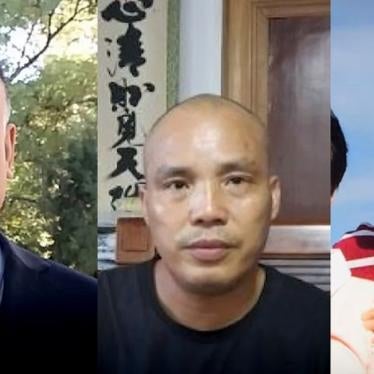If you or someone you know has access to a smartphone, chances are you have at least heard of TikTok—the wildly popular platform that filled the void left by Vine back in 2016, usurping SnapChat and Twitter in the process, and which allows users to create ephemeral video content for the internet that covers everything from dragging pop stars to reenacting world history to offering disquieting glimpses into the lives of its predominantly teenaged users.
As TikTok’s popularity has exploded worldwide, we’ve also found ourselves contemplating some big questions.
For one, users and governments alike are concerned that the app, which is owned by the Chinese company ByteDance, is susceptible to Beijing’s censorship. This perception may be an internal concern as well, given recent news that the company is seeking a new CEO to run TikTok from the US, leading some to speculate it’s an attempt to distance the platform from the Chinese government.
So, is TikTok an innocuous platform for teenagers around the world to share clips of their antics—or, is it a ready forum for Chinese government censorship and surveillance?
And, does TikTok’s controversial record of content removals indicate another issue: its own problematic censorship rules?
The company has repeatedly stated that the Chinese government has not asked it to remove any content and that if it does, the company will not comply. But such reassurances have not satisfied the international community.
For example, there are few videos on TikTok concerning the Hong Kong protests—even though the largely youth-led movement has garnered massive international attention. Is this because TikTok censored them, or is it because—as the platform said in a statement issued by its parent company—few users posted them?
After American teenager Feroza Aziz posted a video condemning the Chinese government’s mass detention of Uyghur Muslims that went viral, her account was suspended. TikTok asserted the suspension was the result of an earlier satirical video of hers referencing Osama Bin Laden being mistakenly flagged for violating the app’s anti-terrorism policy.
Testing the field
In October, my colleague and I tried to test some of these concerns. We started by uploading clips of Tank Man, the young man who famously stood his ground in front of a procession of Chinese army tanks during the 1989 Tiananmen Square crackdown in Beijing.
One clip, uploaded to an account registered in Australia, was visible to the account holder but not to anyone else. When we raised the issue with TikTok, representatives of the company said via email that the video was “incorrectly partially restricted based on guidelines related to displaying identifiable military information.” Our video was later reinstated.
Party time
All Chinese companies, private or public, are accountable not only to their investors but also to the Chinese Communist Party, which is part of what creates an opportunity and mechanism for state censorship. Many companies have an internal party committee as part of their governance structure. ByteDance has one, headed by the company’s vice president Zhang Fuping, and has since 2017. Party committee members at ByteDance regularly gather to study President Xi Jinping’s speeches and pledge to follow the party in technological innovation.
In this system of close Party-private business ties, the government blocks a lot of major international tech companies from breaking into the Chinese market, and focuses on fostering Chinese tech giants in a rigged playing field.
China’s tech companies also benefit from a close relationship with the government, receiving research and development subsidies, tax breaks, and other forms of government support which make it harder for them to resist government pressure.
ByteDance, who’s company mission statement pledges to “inform, educate, entertain and inspire people across languages, cultures and geographies,” has signed a number of agreements with local governments across China on various aspects of its business operation.
A recent report by the Australia Strategic Policy Institute found that ByteDance worked closely with the Chinese police to disseminate state propaganda whitewashing Beijing’s abuses in Xinjiang through Douyin, something of a domestic version of TikTok.
In the same vein, Chinese companies are frequently punished if they fail to sufficiently toe the party line, and ByteDance is no exception. In 2018, China’s media regulator shut down one of the company’s products, the joke app Neihan Duanzi, for “vulgar” content. The company’s founder, Zhang Yiming, who also founded TikTok, had to issue a self-effacing public apology for deviating from “socialist core values” and pledged to ensure that party “voices are broadcast to strength.”
The Chinese Communist Party also has a record of forcibly disappearing and detaining business executives under murky circumstances. In January 2017, Chinese security agents abducted a Canadian-Chinese billionaire, Xiao Jianhua, from his residence in a Hong Kong hotel. His whereabouts and condition remain unknown.
That authorities can arbitrarily detain powerful business people, even those with foreign passports, sends a clear, chilling message to business elites that running afoul of the party incurs severe consequences.
Reports of wrongful video removals by TikTok may also be a sign of another problem that has long bedeviled social media platforms: At its core, this is a simplistic approach to content moderation that is ill-equipped to address political and social nuance, enforced by poorly-trained moderators who are prone to erring on the side of censorship.
To its credit, TikTok representatives told me that the company is speaking to civil society groups to address these concerns.
But at the end of the day, for TikTok to shake off the suspicion surrounding it, ByteDance has to demonstrate that it is really willing to say no to the Chinese government, just like numerous human rights activists and ordinary citizens in China do every day, in spite of the perils that often befall them.









